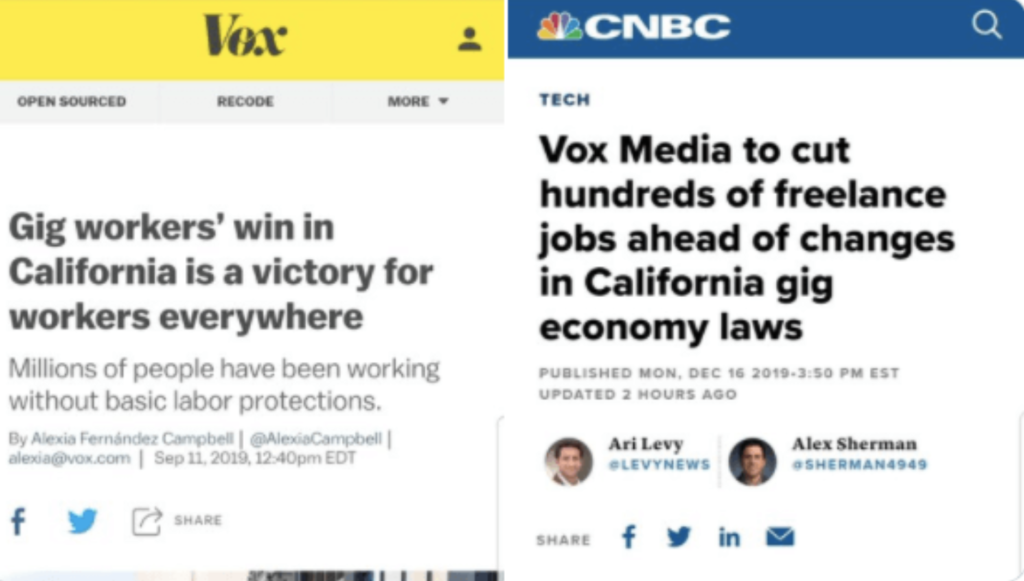A California state law meant to protect gig economy workers is crushing them
In an effort to protect workers, California passed a law limiting businesses’ ability to classify workers as contractors. According to advocates, businesses usually classify workers as contractors in order to avoid giving them benefits that the law requires them to provide to employees. So, the law will prevent such type of behavior and ensure that workers are getting their dues.
The law is, however, hurting the same people it intended to protect. Termed AB-5, the law which was meant to provide gig economy workers the same benefits as regular employees has caused some Freelancers to see a decline in business and income.
Jeremiah LaBrash, a freelance cartoonist who works as a tech programmer by day, has found potential projects drying up after clients discovered he lives in California. LaBrash has seen a 40% decline in his freelance income since the law passed in September.
Vox Media, which initially applauded California’s effort in ensuring labor protections, has already announced hundreds of job cuts in preparation for the bill as it takes effect. While these contractors can apply for full and part-time positions with the company, only a handful will be hired under the new arrangement.

Workers are additionally worried about the structural change this law will bring to their professions.
Akamine Kiarie, a student at California State University, Sacramento, and also a ride-hailing driver, especially likes the flexibility that comes with driving Lyft. And if she has to be classified as an employee, she might lose that ability to work on her own schedule while also going to school.
In January, I’ll reach a lifelong dream: becoming a student at California State University, Sacramento. I’m excited, but also worried because a new state law could threaten my ability to pay my bills and stay in school.
When I began community college, I started driving for Lyft to help pay for school and my expenses. The pay is good, but most importantly the work allows me to choose when I drive, where I drive and how long I drive.
This flexibility means I can fit driving for Lyft into my schedule as a student, rather than fitting my student responsibilities around a job. I can drive where I am, which is often in San Francisco and the greater Bay Area. This may not seem important, but prioritizing my education is my priority.
However, on Jan. 1 a new California law introduces tremendous uncertainty into the life of everyone who works with an app-based ride-hailing or delivery service. The law could force us to be employees instead of independent contractors, eliminating our independence and flexibility.
Another worker, Mr. Nguyen, a Vietnamese refugee, who has been an independent owner-operator for more than 15 years deems the law unfair.
Now they’re telling me, ‘You have to go drive for somebody,’ so what am I going to do with my truck? It’s kind of unfair to me.
Once again, misguided policies meant to help people are having the exact opposite intended effect.